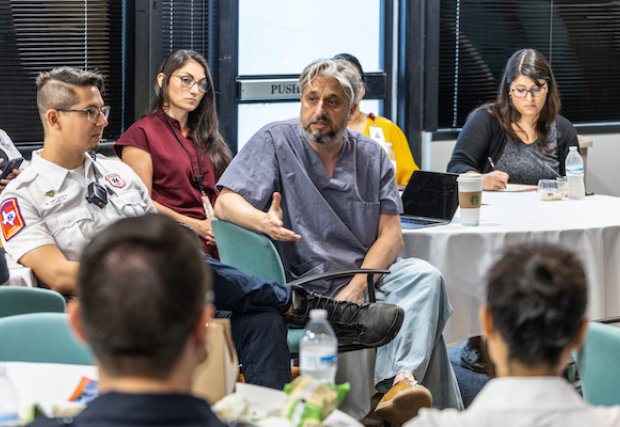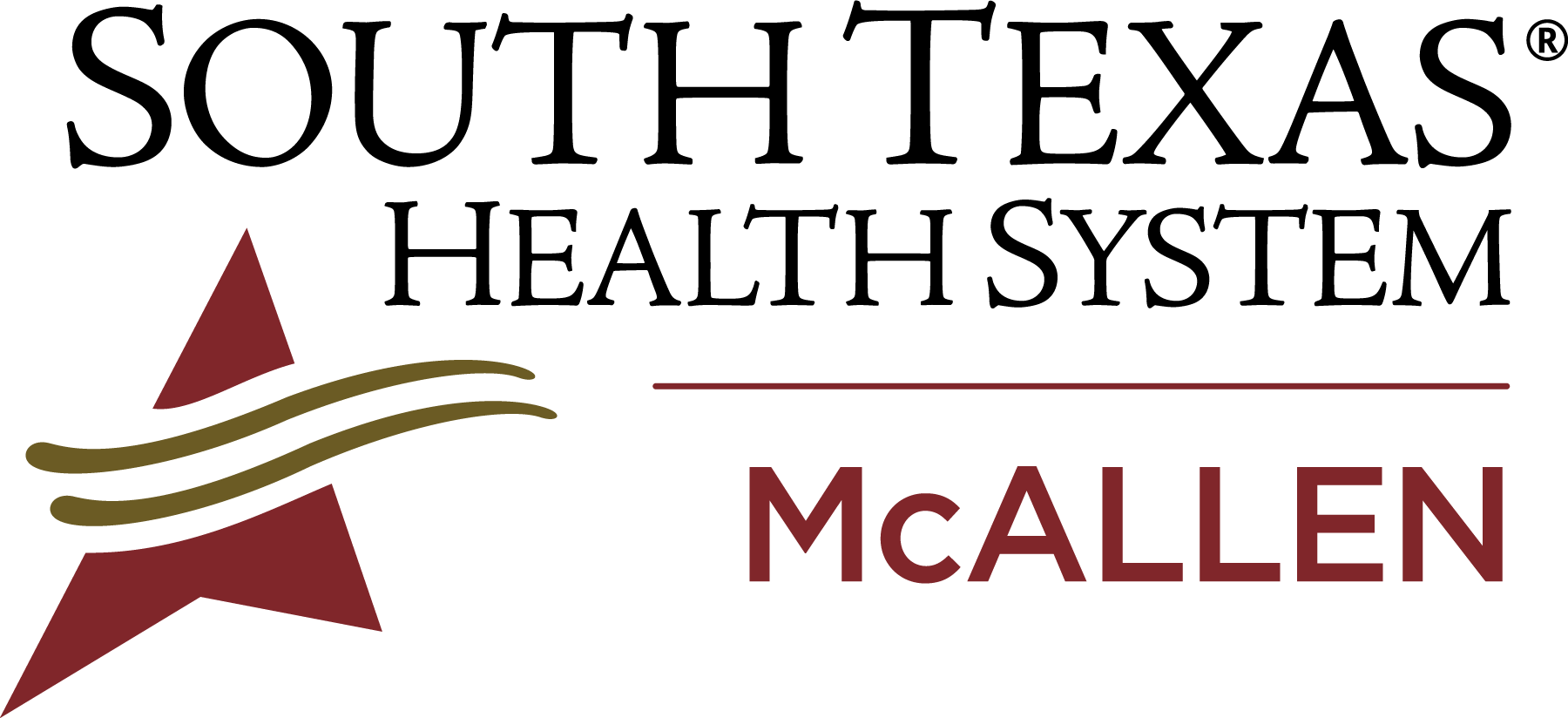South Texas Health System Provides Stroke Response Education to Local EMS Personnel

Emergency medical service (EMS) providers play a vital role in helping people in distress get the medical attention they need in a timely manner. One such time-sensitive scenario is when someone is experiencing a stroke.
Every three minutes and 14 seconds, someone in the United States dies from stroke, according to the Centers for Disease Control and Prevention. But a swift response can mean the difference between life and long-term disability or death, as the chances of survival are higher for the patient the faster they receive the right treatment.
Special Training Session for EMS Personnel
Emphasizing the urgency of getting stroke patients to the appropriate facilities as quickly as possible, Dr. Alexandros Georgiadis, a board-certified neurologist with South Texas Health System Clinics and the Stroke Medical Director at STHS McAllen, led a special training session on stroke education for EMS personnel on Monday, May 22. The session was held as part of National Stroke Awareness Month and EMS Week, which runs from May 21-27, to honor the important work of EMS providers in the community while providing important training aimed at improving stroke patient outcomes.
“The first goal is to educate EMS personnel about how strokes work, what treatments are available and what the symptoms look like,” Georgiadis said. “The second goal is to draw attention to the fact that we offer all kinds of services that not everybody offers and it’s important that patients get funneled to comprehensive stroke centers from the get-go so that no time is lost in getting them the right treatment.”
Comprehensive Stroke Center at STHS McAllen
South Texas Health System McAllen is designated as a comprehensive stroke center by the Texas Department of State Health Services, one of only three such facilities in the Rio Grande Valley. The designation allows responders to identify and transport a person with acute stroke signs and symptoms to an appropriate facility. “I don’t think the community is fully taking advantage of what we have to offer, and I believe EMS can play a role in making these treatments available to more people,” Georgiadis added.
Neurosciences & Stroke Program at STHS McAllen
The stroke education seminar included a demonstration of how to remove a clot with a catheter, which was led by Courtney Holden, Territory Manager for South Texas at Imperative Care, a company that provides catheters that serve to aspirate clots out of a brain during a stroke. “It’s very important that a patient having stroke symptoms is taken to a comprehensive stroke center, so we are raising awareness for local EMS to get those patients to the correct place as quickly as possible. It is imperative to their outcomes,” Holden said. “There’s lots of data that shows time is brain — 1.9 million brain cells die each minute that you’re having a stroke and that’s substantial, so the patient’s outcome depends on getting them to the right place as quickly as possible.”
